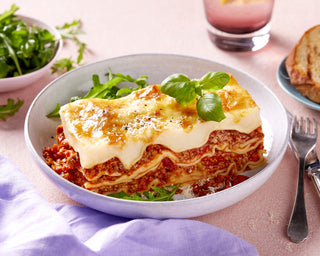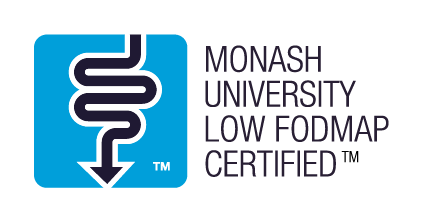Yikes! It's that time of year again right? Your mind may have drifted to bolstering your body's immunity and protecting yourself against illness. Because let's be honest, there's a lot of it going around right!
Fear not, there are ways to boost your immune system through nutrition and food.

Food and Immunity
Food and adequate nutrition play an important role in immunity in fact, malnutrition is the most common cause of immunodeficiency globally. Deficiencies in protein and energy alone are known to affect:
- Phagocyte function (these eat bacteria and turn them into smaller cells)
- Lower immunoglobulin-A antibody concentrations (this help protect against mucous infections) and
- Cytokine production (this signals the body to attack) (1).
Aside from just getting enough protein and energy, adequate intake of zinc, selenium, iron, vitamins A, C, E and B6 can also play an important role in fending off the nasties (2).
Be mindful however when it comes to nutrition, overdoing it can also be harmful as overnutrition and obesity can also lower immunity so it’s all about balance people.
Immune Boosting Nutrients
Vitamin C
We’ve all heard it before, eat more citrus fruits for vitamin C to ease your cold and flu symptoms! Potential links between the two involve vitamin C being a potent antioxidant, contributing to immune responses through both the innate and adaptive defense systems. On top of this, it accumulates inside immune cells and assists in microbial killing – woo! Studies on megadoses have found that 6 x 100mg of vitamin C administered saw an 85% reduction in flu and cold symptoms. However despite being heavily researched the topic remains controversial as dosages reduce the severity and duration of symptoms but don’t prevent them. Moreover other studies have found no effect for doses larger than 1g… which is equivalent to 20 oranges so I think we’re all okay on that front too. Vitamin C is abundant in our food groups so there is no need for supplementation if you practise a well-balanced and healthy lifestyle.
Examples include:strawberries, broccoli, capsicums, tomatoes, green leafy vegetables
Protein
Protein doesn’t just only assist with muscle growth, satiety and mood but it’s also plays a huge role in immune function as it forms the building blocks of many immune cells and the immune system overall. Extensive studies are also available that suggests deficiencies in protein significantly reduces immunocompetence as well.
Examples include lean protein, poultry, eggs, nuts.
For vegetarians and vegans: Great sources of protein include quinoa, chia seeds, hemp seeds, legumes and nuts. Some veggies that are high in protein include corn, edamame, asparagus and avocado.
Omega – 3
Omega-3 is known as brain food but dietary omega 3’s is also known to display anti-inflammatory effects that boost immunity. Interestingly, this study found that modified versions of omega-3 showed increased survival in mice models that were infected by strains of the flu. However, this area of research is still new, so more research is necessary. That aside, we’re all for eating more omega-3’s whether it be to help with flu symptoms or not.
Examples include oily fish, nuts and seeds, flaxseed oil.
Zinc
One of the most underrated nutrients IMO and deserving of much more recognition than what it has. Zinc deficiencies have shown impaired function of important cell signaling molecules, which are also involved in producing antibodies to fight of foreign substances.
Fortunately changes in the immune system are often reversed within weeks when zinc intake is consumed through nutritional counselling or supplementation. Examples include hemp seeds, sesame, oats, quinoa, pumpkin seeds & shellfish.
At Dineamic, our aim is to make Australia healthier one meal at a time. Through locally sourced ingredients and high quality meals, you can rest assured your getting optimum nutrition from our food.
References:
- Chandra R. Nutrition and the Immune System: An Introduction. Am J Clin Nutr 1997 Aug; 66 (2): 460S-463S - https://www.ncbi.nlm.nih.gov/pubmed/9250133
- Chandra R. Immunocompetence in undernutrition. J Pediatri. 81:1194-1200 https://www.jpeds.com/article/S0022-3476(72)80262-2/pdf









